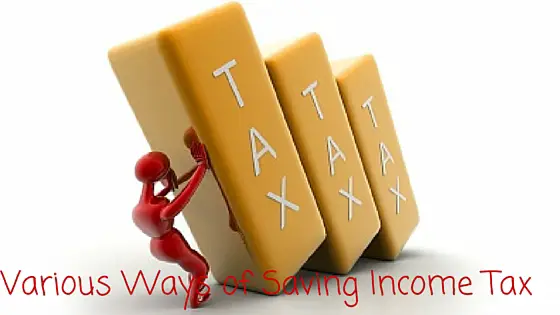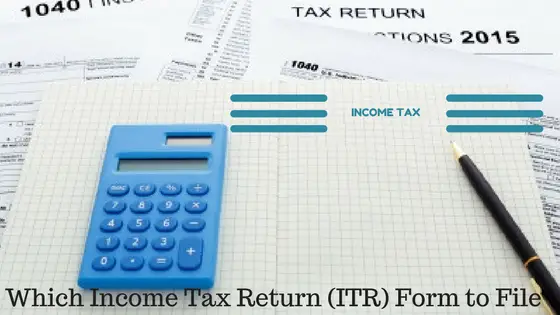 Income tax is the most concerned thing for large numbers of people across India. Most of us buy insurance policies and various other financial products in a hurry only to save tax. Income tax savings should not be done only for tax saving. It should be in line with your financial goal also. There are a number of ways of saving income tax. Our aim should not only to save tax but also to create wealth at the same time. Hence, it is wise to plan income tax savings at the start of financial year. Here are the ways of saving income tax.
Income tax is the most concerned thing for large numbers of people across India. Most of us buy insurance policies and various other financial products in a hurry only to save tax. Income tax savings should not be done only for tax saving. It should be in line with your financial goal also. There are a number of ways of saving income tax. Our aim should not only to save tax but also to create wealth at the same time. Hence, it is wise to plan income tax savings at the start of financial year. Here are the ways of saving income tax.
Hence, here are the ways of saving income tax.
-
Interest from Savings Bank Account
Under section 80TTA, the interest accrued in the savings bank account is exempted from income tax. The amount is restricted to Rs 10000.
-
Home Loan Interest
The interest component can be used to claim for deduction under Section 24B if the house is ready and in your possession. The maximum amount for exemption is Rs 2 lakh. If you have rented out the house, the entire interest can be claimed as a deduction from the rental income. Stamp duty, registration fee and other expenses for the purpose of transfer of such house property is also eligible.
Also Read: Five Reasons Why You Should Not Prepay Home Loan
-
Deductions under Chapter VI-A
Accrued Interest is Taxable in the year in which it has been accrued. this is applicable to the fixed deposit, recurring deposit etc. The accrued interest is to be included in the income.
Also Read: Income Tax Planning for Salaried Employees in FY 2018-19
A maximum of Rs 1.5 lakh can be deposited during the financial year 2018-19
| Sl No | Scheme No | Brief Description | Return | Tax Benefits on Earnings |
Under Section 80C |
||||
| 1 | Life Insurance | The policy should be in the name of the individual, spouse, children or jointly. Policy can also be taken on dependent siblings. However, the premium has to be paid from the income of the Employee | Varies.
Generally, 6-7% for endowment policy |
Earnings are tax-free. |
| 2 | ULIP | Unit Linked Insurance Policy which returns linked with the equity and covers the life insurance as well. | Varies.
Generally, 10-12% with risk attached |
Earnings are tax-free. |
| 3 | ELSS | The investment should be only in the name of the individual. | Varies. Normally 12-15 % returns one can expect. | Dividend is tax-free |
| 4 | EPF/VPF | In this fund, 10 % to 12 % of a person’s basic salary gets deducted and the other 12 % is contributed by the employer. Employee’s portion can be claimed as the tax benefit. | 8.5% per annum.
One can withdraw the entire amount in instances of leaving the job, retirement after 58 years of age or taking V. R. S. Partial withdrawal can be done for home, medical or marriage related expenses. |
Earnings are tax-free. |
| 5 | PPF | The account should be in the name of the employee or spouse or minor children. | Around 7.5% to 7.9% | Interest is tax-free. Maximum investment Rs 150000 per year. |
| 6 | Fixed Deposit | Fixed deposit should be with scheduled bank & for the term of a minimum of 5 years and above. | Varies. Normally around 8%. | Nil |
| 7 | NSC | Investment on National Savings Certificate through Post offices | 1. For 5 year deposit:7.9%
2. For 10 Year Deposit: 7.9% |
|
| 8 | Housing Loan Principal | The deduction will be allowable in respect of payments made during the year for the purchase or construction of residential house. | ||
| 9 | Tuition fees | A tuition fee of maximum two children is tax-free. | ||
| 10 | Sukanya Samriddhi Account | This account can be opened at any time from the birth of a girl child till she attains the age of 10 years, with a minimum deposit of Rs 1000. | ||
Under Section 80CCC |
||||
| 11 | National Pension Scheme | Unit Linked pension plans. At least Rs 6000 in a year. Rs 50000 in addition to 80C limit. | Variable. Linked with equity. | Earning is taxable |
Under Section 80D |
||||
| 12 | Medical insurance | Health Insurance cover for self, spouse and children. | ||
| 13 | Medical insurance for Sr Citizen | Health insurance cover for Sr citizen parents can be claimed for tax benefit up to Rs 50000. | Not Applicable | Not Applicable |
Under Section 80DD |
||||
| 14 | Treatment of Handicap Dependent (Severe Disability,
Non-Severe) |
The limits were fixed at Rs 50,000. Further, the limit for a person with a severe disability is one lakh rupees. | Not Applicable | Not Applicable |
Under Section 80DDB |
||||
| 15 | Medical Expense on Specified Disease (Sr. Citizen, Other) | Not Applicable | Not Applicable | |
Under Section 80G |
||||
| 16 | Donation | Donations to charitable organizations are tax-free. The total deduction for donations cannot exceed 10 percent of your gross total income. | Not Applicable | Not Applicable |
Under Section 80E |
||||
| 17 | Higher Education (Interest On Loan Only) |
The loan should be for pursuing higher education for SELF, SPOUSE and CHILDREN for full-time studies. |
Not Applicable | Not Applicable |
Under Section 80U |
||||
| 18 | Self-Handicap (Severe Disability, Non-Severe) | Limit of deduction in respect of a person with disability is Rs 125000 | Not Applicable | Not Applicable |
Here are the income tax deduction limit for the financial year 2017-18.
- If Taxable income is up to Rs 250000, no income tax
- For Taxable income of Rs 250000-500000, income tax is 5%
- If Taxable income is Rs 500000-1000000, income tax is 20%
- If Taxable income is above Rs 1000000, income tax is 30%
- A standard deduction of Rs 40000 is applicable from income. Medical benefits and conveyance benefit is not applicable from FY 2018-19.
- Education Cess: The amount of income-tax shall be further increased by education cess calculated at the rate of 2% of such income-tax.
- Cess: The amount of income-tax and the applicable surcharge, shall be further increased by secondary and higher education cess calculated at the rate of 1% of such income-tax. From Fy 2018-19 there is 1% health cess is levied with other cesses.
- Total cess on income tax is 4%
- Rebate is available to a resident individual if his total income does not exceed Rs. 3,50,000. The amount of rebate shall be 100% of income-tax or Rs. 2500, whichever is less.
- 10% surcharge for the income of Rs 50 lakh to Rs 1 Cr
- 15% surcharge for the income of more than Rs 1 Cr
For more, visit income tax chart.
Also Read: ELSS of PPF which is better for investment
Five Tips for Saving Tax Which You Miss
SIP Vs RD: Which is Better for Investment
After reading this, I am sure that you want to use the each and every ways of saving income tax and minimize it. So my suggestion to you to plan early and not to hurry and end up buying some inappropriate financial products at the last moment.
Hope this article, various ways of saving income tax will help you to get a fair understanding of income tax saving options.
Sharing is caring. If you like this article, various ways of saving income tax, please don’t forget to share it with your friends, relatives, colleagues.



